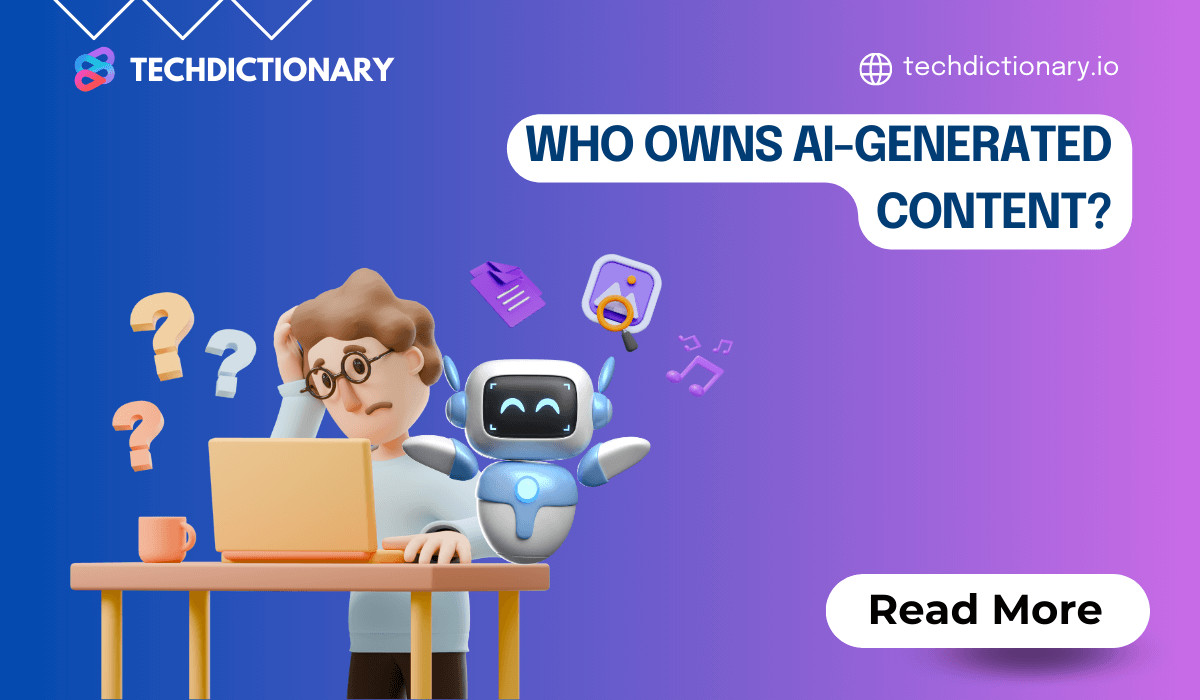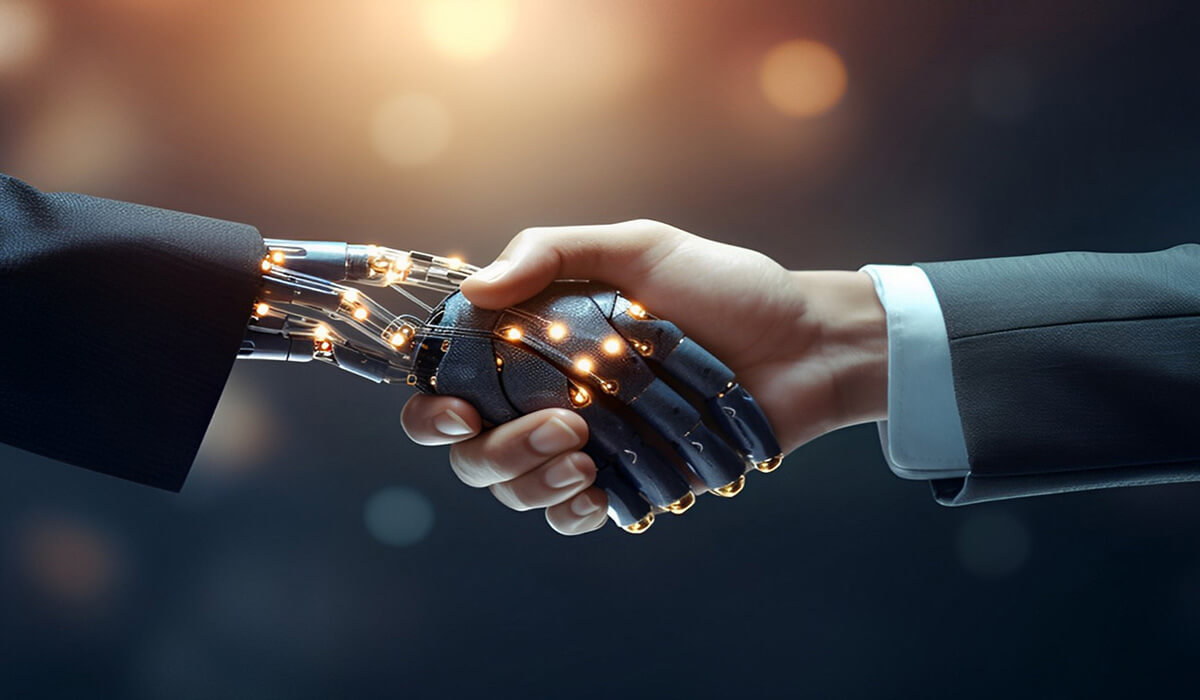
With the rise of Artificial Intelligence (AI), it’s getting harder to tell the difference between human and AI creations. The question of who owns AI-generated content has sparked an interesting debate.
Before we all get too deep into using ChatGPT or other AI tools to make things for us, let TechDictionary help you find your way through the legal and ethical confusion of AI-generated content rights.
Although they are not the same, ownership and copyright frequently overlap. Copyright defines who holds the legal right to use, reproduce, share, and change the material, whereas ownership determines who is allowed to use it. This is where AI becomes complex:

Since the Copyright Act of 1976 requires human authorship, AI-generated content doesn’t have ownership rights, as stated by the US Copyright Office. This means unless you make changes and add your own ideas, you don’t own work that is generated by AI.
But some countries, like the UK, India, Ireland, and New Zealand, on the other hand, refuse to agree. They believe that authors are people, usually coders or developers.
Therefore, it’s crucial to check with your own property office first.
The idea that AI could be an author is becoming more popular as AI tools get smarter.
Some people say that using generative AI tools could be seen as stealing from the writers whose work was used as training data.
However, If the creation can truly be created completely by AI, should it be recognized as the rightful owner? Should AI writing tools like StealthWriter or ChatGPT be cited as a source? In fact, “From a Blue Book citation standpoint — citing in court briefs — as well as for literary purposes, a citation to the source as ChatGPT would be appropriate,” says Michael Kelber, co-chair of Neal Gerber Eisenberg’s IP practice group.
This is a debate that will likely shape the future of intellectual property law.
While AI content generation offers promising prospects for potential customers, it’s important to also consider the possible risks involved and how to get away with them:
Maybe you are interested: Who Is Responsible For Ai Mistakes?
This big note for anyone who are creator of original material, you should protect it by copyrighting it. Right now, it only costs $45 to apply for text copyright for one work and $85 to apply for a group of works in the United States.
If you are using AI for clients who require copyright or trademark, you must set higher standards. Remember to ask them for a signed agreement before working with AI to create content.
It is essential for us to understand the complicated nature of AI-generated content as we explore this uncharted area. Here is an approach to proceed carefully:
Maybe you are interested: Does Turnitin Detect Stealth Writer?
Who Owns AI-Generated Content? This question might not have a simple answer yet, but with this guide, you’re well-equipped to navigate the complexities of AI content creation. Now, go forth and create responsibly!
Here at TechDictionary, we recommend using AI content-generation tools responsibly and ethically. By understanding the ownership landscape and potential risks, you can leverage AI to create innovative and impactful content.

